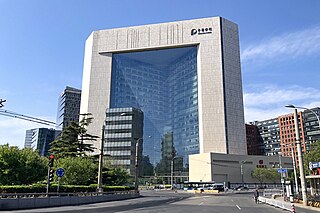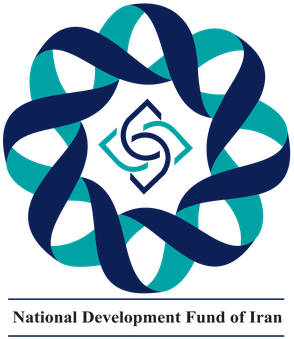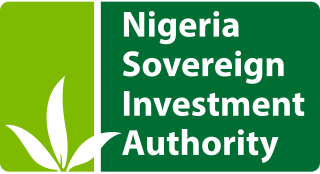Related Research Articles
A hedge fund is a pooled investment fund that holds liquid assets and that makes use of complex trading and risk management techniques to improve investment performance and insulate returns from market risk. Among these portfolio techniques are short selling and the use of leverage and derivative instruments. In the United States, financial regulations require that hedge funds be marketed only to institutional investors and high-net-worth individuals.

The Abu Dhabi Investment Authority is a sovereign wealth fund owned by the Emirate of Abu Dhabi in the United Arab Emirates, founded to invest funds on behalf of the Government of Abu Dhabi. It manages the emirate's excess oil reserves and is estimated to manage $853 billion. ADIA is one of the largest sovereign wealth funds in the world.

Pacific Investment Management Company LLC is an American investment management firm focusing on active fixed income management worldwide. PIMCO manages investments in many asset classes such as fixed income, equities, commodities, asset allocation, ETFs, hedge funds, and private equity. PIMCO is one of the largest investment managers, actively managing more than $2 trillion in assets for central banks, sovereign wealth funds, pension funds, corporations, foundations and endowments, and individual investors around the world. According to the Sovereign Wealth Fund Institute, PIMCO is the 6th-largest asset manager in the world by managed AUM.
A "fund of funds" (FOF) is an investment strategy of holding a portfolio of other investment funds rather than investing directly in stocks, bonds or other securities. This type of investing is often referred to as multi-manager investment. A fund of funds may be "fettered", meaning that it invests only in funds managed by the same investment company, or "unfettered", meaning that it can invest in external funds run by other managers.
The Future Fund is an independently managed sovereign wealth fund established in 2006 to strengthen the Australian Government's long-term financial position by making provision for unfunded superannuation liabilities for politicians and other public servants that will become payable during a period when an ageing population is likely to place significant pressure on the Commonwealth's finances. As of December 31 2023, the fund has $272.3 billion in assets under management.

A sovereign wealth fund (SWF), sovereign investment fund, or social wealth fund is a state-owned investment fund that invests in real and financial assets such as stocks, bonds, real estate, precious metals, or in alternative investments such as private equity fund or hedge funds. Sovereign wealth funds invest globally. Most SWFs are funded by revenues from commodity exports or from foreign-exchange reserves held by the central bank.

The Institute of International Finance (IIF) is the association or trade group for the global financial services industry. It was created by 38 banks of leading industrialized countries in 1983 in response to the international debt crisis of the early 1980s, and has since expanded to represent more than 400 firms from more than 60 countries. IIF members include commercial and investment banks, asset managers, insurance companies, professional services firms, exchanges, sovereign wealth funds, hedge funds, central banks and development banks.

An alternative investment, also known as an alternative asset or alternative investment fund (AIF), is an investment in any asset class excluding capital stocks, bonds, and cash. The term is a relatively loose one and includes tangible assets such as precious metals, collectibles and some financial assets such as real estate, commodities, private equity, distressed securities, hedge funds, exchange funds, carbon credits, venture capital, film production, financial derivatives, cryptocurrencies, non-fungible tokens, and Tax Receivable Agreements. Investments in real estate, forestry and shipping are also often termed "alternative" despite the ancient use of such real assets to enhance and preserve wealth. Alternative investments are to be contrasted with traditional investments.

China Investment Corporation is a sovereign wealth fund that manages part of China's foreign exchange reserves. China's largest sovereign fund, CIC was established in 2007 with about US$200 billion of assets under management, a number that grew to US$1,200 billion in 2021 and US$1,350 billion in 2023.

Sculptor Capital Management is an American global diversified alternative asset management firm. They are one of the largest institutional alternative asset managers in the world.
Cheyne Capital is a London-based alternative asset manager. The firm launched its first fund in 2000 and today specializes in real estate debt, social property impact, corporate credit, convertible bonds, event driven investing and equities.

The New Zealand Superannuation Fund is a sovereign wealth fund in New Zealand. New Zealand currently provides universal superannuation for people over 65 years of age and the purpose of the Fund is to partially pre-fund the future cost of the New Zealand Superannuation pension, which is expected to increase as a result of New Zealand's ageing population. The fund is a member of the International Forum of Sovereign Wealth Funds and is therefore signed up to the Santiago Principles on best practice in managing sovereign wealth funds.

Samruk-Kazyna, officially known as the National Welfare Fund "Samruk-Kazyna", is a sovereign wealth fund and joint stock company in Kazakhstan which owns, either in whole or in part, a number of major companies in the country. This includes the national rail and postal service, the state oil and gas company KazMunayGas, the state uranium company Kazatomprom, Air Astana, and others. The state is the sole shareholder of the fund.
The Santiago Principles or formally the Sovereign Wealth Funds: Generally Accepted Principles and Practices (GAPP) are designed as a common global set of 24 voluntary guidelines that assign best practices for the operations of Sovereign Wealth Funds (SWFs). They are a consequence of the concern of investors and regulators to establish management principles addressing the inadequate transparency, independence, and governance in the industry. They are guidelines to be followed by sovereign wealth fund management to maintain a stable global financial system, proper controls around risk, regulation and a sound governance structure.
Jonathan Epstein is an economist who worked on the implementation and establishment of Australia's sovereign wealth fund, the Future Fund as a senior analyst and adviser to the chairman.

The National Development Fund of Iran is Iran's sovereign wealth fund. It was founded in 2011 to supplement the Oil Stabilization Fund. NDFI is independent of the government's budget. Based on Article 84 of the Fifth Five-year Socio-Economic Development Plan (2010–2015), the National Development Fund was established to transform oil and gas revenues to productive investment for future generation. It is a member of the International Forum of Sovereign Wealth Funds and therefore is signed up to the Santiago Principles on best practice in managing sovereign wealth funds. Withdrawing any money from this fund requires Khamenei's permission.

The Nigeria Sovereign Investment Authority is a Nigerian establishment which manages the Nigeria sovereign wealth fund, into which the surplus income produced from Nigeria's excess oil reserves is deposited. This sovereign wealth fund was founded for the purpose of managing and investing these funds on behalf of the government of Nigeria. The fund was established by the Nigeria Sovereign Investment Authority Act 2011, signed in May 2011, and commenced operations in October 2012. It is intended to invest the savings gained on the difference between the budgeted and actual market prices for oil to earn returns that would benefit future generations of Nigerians. The fund was allocated an initial US$1 billion in seed capital, and, an additional $0.60billion has been contributed to date by the current administration. In October 2023, the fund has US$2.3 billion in assets under management.
The Fondo Mexicano del Petróleo para la Estabilización y el Desarrollo is a state-owned sovereign wealth fund of Mexico's government created to manage the wealth from revenue stream on its oil industry. The inception of the fund was designed by the Ministry of Finance and Public Credit while Banco de Mexico manages the fund. The fund begun existence on 30 September 2014 but actual operation of the fund started on 1 January 2015 to become the newest addition in global sovereign wealth fund. The establishment of the fund forms part of the energy reform in Mexico following the declining production of oil that has affected the budget of the national government. The fund is a member of the International Forum of Sovereign Wealth Funds and are signed up to the 24 Santiago Principles which are a voluntary standard of best practice endorsed by the members for the management of the Sovereign Wealth Funds.
The International Forum of Sovereign Wealth Funds (IFSWF) is a nonprofit international group of sovereign wealth funds managers which was established in 2009. It is based in London, England.
Alternative data refers to data used to obtain insight into the investment process. These data sets are often used by hedge fund managers and other institutional investment professionals within an investment company. Alternative data sets are information about a particular company that is published by sources outside of the company, which can provide unique and timely insights into investment opportunities.
References
- 1 2 "Mission". Hedge Fund Standards Board. Archived from the original on Oct 1, 2016. Retrieved 27 September 2016.
- 1 2 HFSB Annual Report. UK: Standards Board for Alternative Investments. 2016.
- ↑ "Sir Andrew Large Advisor to the Board". SBAI. Archived from the original on 9 February 2018. Retrieved 9 February 2018.
- ↑ "History". Hedge Fund Standards Board. Archived from the original on Oct 1, 2016. Retrieved 27 September 2016.
- ↑ "International Forum of Sovereign Wealth Funds (IFSWF) and Hedge Fund Standards Board (HFSB) establish Mutual Observer relationship". Hedgeweek. April 4, 2016. Archived from the original on 27 September 2016. Retrieved 27 September 2016.
- ↑ "Dame Amelia Fawcett DBE". SBAI. Archived from the original on Feb 10, 2018. Retrieved 9 February 2018.
- ↑ "Standards Board for Alternative Investments (SBAI)" (PDF). London: SBAI. February 2018. Archived from the original (PDF) on Feb 10, 2018. Retrieved 9 February 2018.
- ↑ "Hedge Funds Standards Board (HFSB) Becomes Standards Board for Alternative Investments (SBAI)" (PDF). Standards Board for Alternative Investments. 13 September 2017. Archived from the original (PDF) on Feb 10, 2018. Retrieved 9 February 2018.